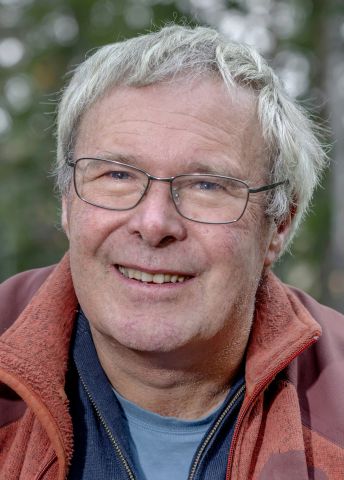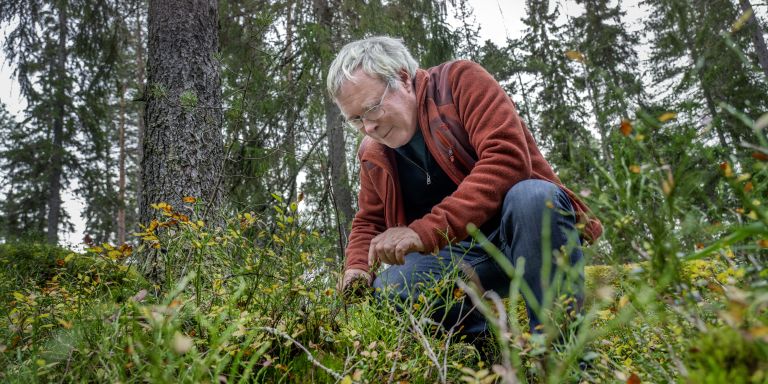
David Wardle
Professor of Ecology
Wallenberg Scholar
Institution:
Umeå University
Research field:
Ecosystems above and below ground, and how they are impacted by global environmental changes


Wallenberg Scholar
Institution:
Umeå University
Research field:
Ecosystems above and below ground, and how they are impacted by global environmental changes
Wardle, who is a professor of ecology at Umeå University, is primarily concerned with the way ecosystems work, and how they respond to global environmental change.
All terrestrial ecosystems have two parts: one that is visible above ground, providing habitats for plants and animals, and one underground – the realm of fungi, bacteria and small animals. In the past researchers mainly either concentrated on life above ground or on life below ground, but over the past 20 years there has been growing recognition that these below ground and above ground components are closely interlinked.
“It’s important to understand both parts in order to see how humans are impacting ecosystems. We also affect which species of plants and animals are present, which in turn changes nature’s ability to cycle nutrients and store carbon. Only when we understand what we’re doing to nature will we able to reduce our impact and restore ecosystems to a healthy state,” he says.
Wardle’s research is based primarily on field studies in Sweden and around the world. In Arjeplog in the north of the country he is studying how changes in forest fire history are impacting the ecosystem using a model system of lake islands. In peatlands of south-east Asia he is investigating how we can remedy damage to land caused by humans, and in New Zealand he is studying how invasive species change nature.
“New Zealand is one of the countries most affected by animals and plants introduced by humans. This makes it a very interesting area to study,” he says. He himself was born and raised in New Zealand.
Along one of the mountain slopes close to Abisko in the far north of Sweden Wardle and his research team are conducting field studies in which they are studying how temperature increases caused by climate change impact ecosystems. The study focuses on a temperature increase of approximately three degrees Celsius, which is the rise expected to occur this century.
“Conserving and restoring ecosystems is vital if we are to protect biodiversity and stop species going extinct. Healthy ecosystems also provide us with important resources, such as food, wood, pollination and carbon storage, the last of which helps us to mitigate climate change,” he says.
Human impact has altered virtually all ecosystems on Earth, mainly due to the ways we use land and how we have impacted the climate.
He explains that human impact has altered virtually every ecosystem on Earth. Climate change affects both which species survive and how quickly an ecosystem can adapt. Other problems, such as land clearance and pollution, also impact nature.
“Globally speaking, the main changes relate to the ways we use land and how we have impacted the climate. There are solutions, but they must be adapted to the place or the problem,” explains Wardle.
He has been cited more than 110,000 times, and since 2006 has been included on every “Highly Cited Researchers List” published by Clarivate or the Institute for Scientific Information (ISI). Wardle’s research is also used in many countries to create strategies to alleviate the effects of global environmental changes and to restore the ecosystems that are currently under threat. Among other things, he has contributed knowledge on how trees can be planted to mitigate climate change, and how to deal with invasive species, which often have a devastating impact on native flora and fauna. His knowledge has helped shape New Zealand’s strategy for managing forested islands and monitoring pests such as insects, fungi and deer. The National Parks Board in Singapore has also used his research to deal with the problems caused by wild boar in the country’s forest reserves.
“We use monitoring data from long-term experiments and existing data. One globally unique example is our experiments in lakes in northern Sweden, where we have manipulated the assemblage of plants in an experiment that has now been running for nearly 30 years to study how nature is impacted by different environmental conditions,” says Wardle, and goes on:
“The goal of all my research is to understand how global changes impact nature, and how we can help restore ecosystems to thrive.”
Text Elin Olsson
Translation Maxwell Arding
Photo Johan Gunséus